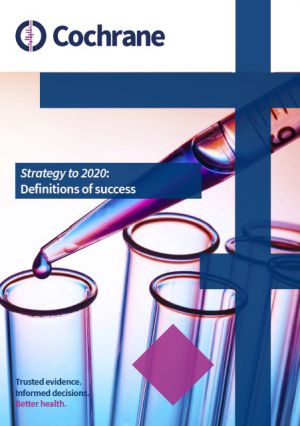

2017 sees Cochrane enter its fourth year of Strategy to 2020, which aims to put Cochrane evidence at the heart of health decision-making all over the world.
Cochrane’s focus during 2016 has been on the delivery of mission critical initiatives, many of which will begin widespread implementation in 2017. These include changes to the structures and ways of working of Cochrane Groups; the launch of the new, enhanced Cochrane Library and the Cochrane Membership scheme; the establishment of a new Knowledge Translation Strategy; and the completion of Project Transform and annotation of all Cochrane Reviews, which will help us to build a more flexible, powerful ‘linked data’ evidence system for the future.
Cochrane’s Senior Management Team has recently released a document that provides the Governing Board, and the wider Cochrane community, with a definition of success for each of the Strategy to 2020 objectives; an assessment of predicted progress by the end of 2017; and a framework for establishing the work still to be done.
This document is intended to be relevant until 2020. In our latest Community blog, Cochrane’s CEO, Mark Wilson, explains the importance of defining success, and how we can all use it to shape our work priorities:
Press play to listen to the interview while viewing the 'Definitions of success' document above.
Related resources


